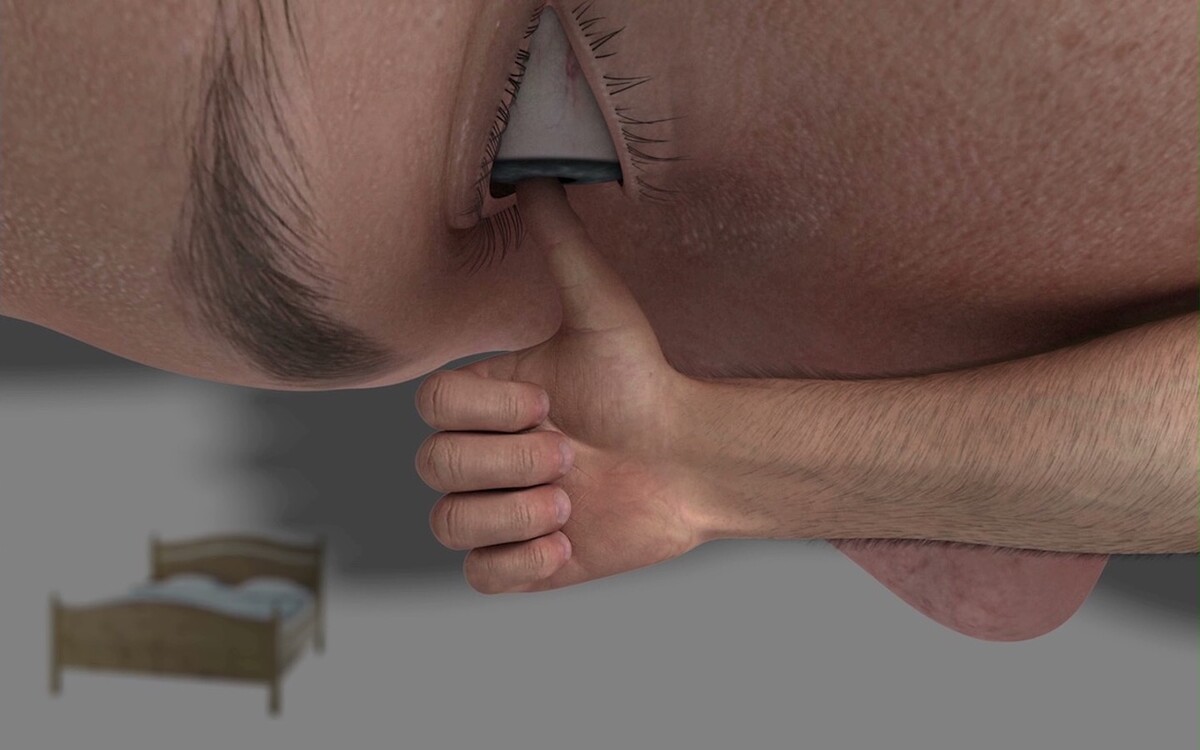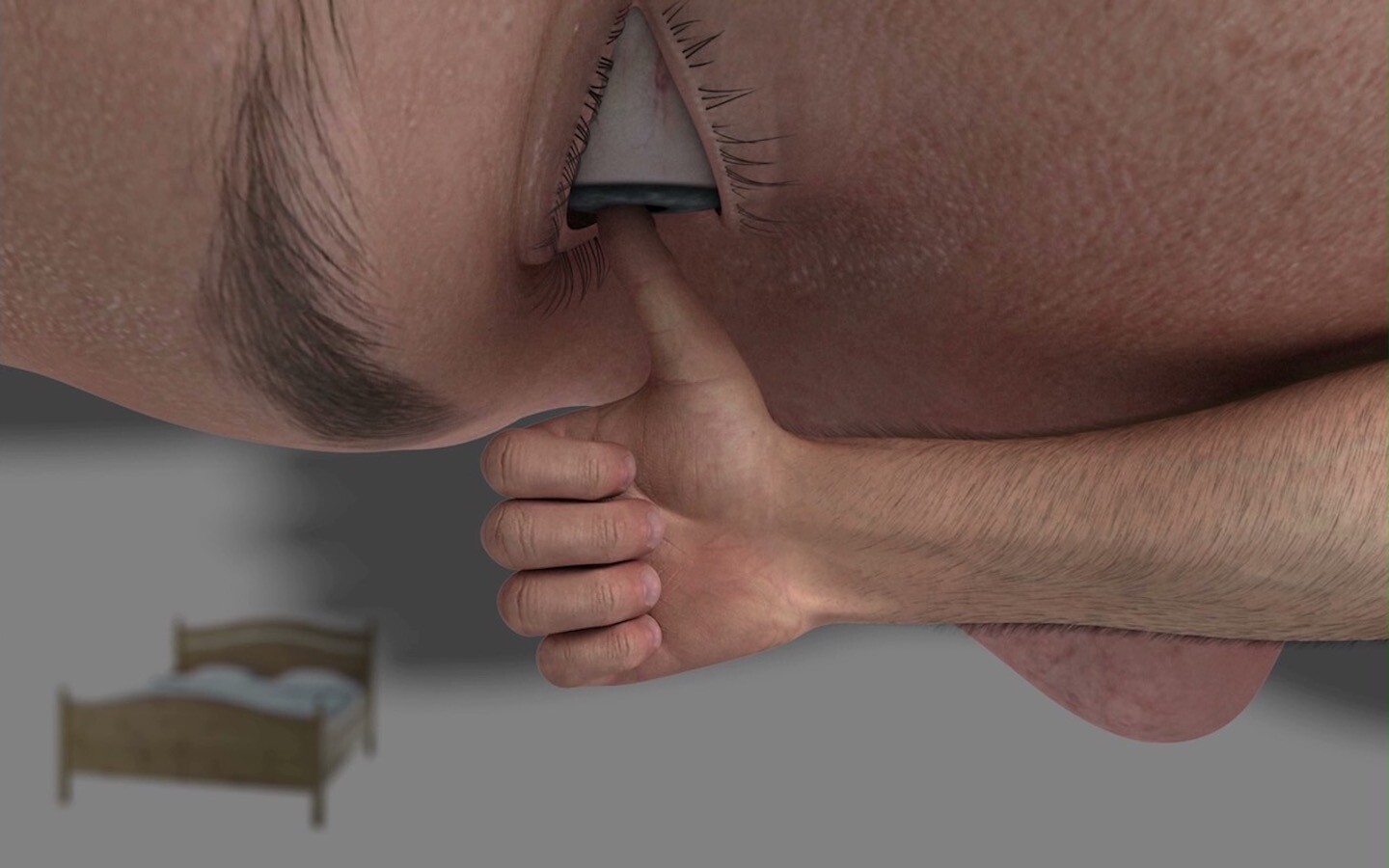Digital PTSD: The Practice of Art and Its Impact on Digital Trauma
Part II
May 20, 2021, 3–10pm
Castello di Rivoli Museo d’Arte Contemporanea is presenting a two-part program of talks, conversations, and artworks between 2020-2021, entitled Digital PTSD. The Practice of Art and Its Impact on Digital Trauma developed in the framework of the exhibition Espressioni. The Proposition.
Digital PTSD. Part II is presented at Castello di Rivoli Theatre (free access with Museum ticket, booking is essential) and livestreamed on both e-flux and Castello di Rivoli websites (please register here).
It is counterintuitive, but Digital PTSD presents through an online platform a critique of the potential misuse of technologies by proposing an interdisciplinary enquiry into the possibility that a trauma from hyper-digitisation may be emerging, at both individual and collective level. In the context of society’s growing reliance on online technologies and Artificial Intelligence, Digital PTSD questions whether these tools may be sources of psychological distress, undermining physical and mental well-being as well as facilitating the affirmation of a technocracy which ultimately poses a threat to public freedom and social justice. What are the traumatic consequences of the sudden increase in virtual activities during a period when spaces of aggregation, such as museums, have been in extended lockdown? Digital PTSD invites to reflect on screen-based experience, the physical erosion of living matter, the transformation of life into big data and the new digital epistemic regime.
Participants in Part II include: Ed Atkins, artist; Janet Cardiff and George Bures Miller, artists; Carolyn Christov-Bakargiev, museum director, exhibition maker, writer; Devra Davis, epidemiologist, activist; Irene Dionisio, author, director, visual artist; Katerina Fotopoulou, psychodynamic neuroscientist; Vittorio Gallese, cognitive neuroscientist; Vincent Hendricks, philosopher, logician; Catherine Malabou, philosopher; Otobong Nkanga, artist; Tabita Rezaire, artist, devotee, yogi, doula, soon to be farmer; Legacy Russell, curator, writer; Miao Ying, artist.
The event runs from 15:00 to 22:00 CEST. Further information and program available on this link.
Digital PTSD - Part I took place on December 12, 2020, and included: Tabita Rezaire, artist; Carolyn Christov-Bakargiev, museum director, exhibition maker, writer; Beatriz Colomina & Mark Wigley, architectural historians, theorists, curators; Cécile B. Evans, artist; Matteo Pasquinelli, cognitive sciences, digital economy, machine intelligence theorist; Hito Steyerl, filmmaker, visual artist, writer, and innovator of the essay documentary; Grada Kilomba, artist and writer; Anne Imhof, artist musician; Bracha L. Ettinger, painter, theorist, psychoanalyst; Éric Sadin, writer and philosopher; Vittorio Gallese, cognitive neuroscientist; Ophelia Deroy, philosopher and cognitive neuroscientist; Griselda Pollock, feminist-postcolonial-queer-international art historian and cultural analyst; Agnieszka Kurant,artist; Cally Spooner, artist; Chus Martínez, curator and writer; Stuart Ringholt, artist; Marcos Lutyens, artist and hypnotist. Documentation of the full event can be watched here.
Digital PTSD. The Practice of Art and Its Impact on Digital Trauma is a research program initiated by Carolyn Christov-Bakargiev with Stella Bottai and Giulia Colletti.
DIGITAL PTSD – PART II
PARTICIPANTS’ BIOGRAPHIES
Ed Atkins lives and works in Copenhagen. His upcoming solo exhibition Get Life / Love’s Work opens at the New Museum in New York in June 2021. Forthcoming exhibitions aslo include Tank, Shanghai, and Tate Britain. Recent solo exhibitions include Kunsthaus Bregenz and K21 Düsseldorf (both 2019); Martin-Gropius-Bau, Berlin; MMK Frankfurt; DHC/ART, Montréal (all 2017); Castello di Rivoli and Fondazione Sandretto Re Rebaudengo, Turin; The Kitchen, New York (all 2016). An anthology of his texts, ‘A Primer for Cadavers’, was published by Fitzcarraldo in 2016. An epic nothing, ‘Old Food’, was published by Fitzcarraldo in 2019. A new book of his drawings for children is published by Koenig Books this Spring.
Janet Cardiff and George Bures Miller live and work in British Columbia. The artists are internationally recognized for their immersive multimedia sound installations and their audio/video walks. They have created recent video walks at the Walt Disney Concert Hall in Los Angeles (2019), and for the Fruitmarket Gallery in Edinburgh (2019). Cardiff and Miller have shown at the Museum of Modern Art in New York (2019) Museum of Contemporary Art in Monterrey, Mexico (2019); Oude Kerk, Amsterdam (2018); 21st Century Museum, Kanazawa, Japan (2017) and Fondation Louis Vuitton, Paris (2017). In 2020 they were awarded the Wilhelm Lehmbruck prize for sculpture. In 2001, Cardiff and Miller represented Canada at the 49th Venice Biennale, for which they received the Premio Speciale and the Benesse Prize.
Carolyn Christov-Bakargiev is a writer, art historian and curator. Currently, she is the Director of Castello di Rivoli Museo d’Arte Contemporanea and Fondazione Francesco Federico Cerruti in Turin. She is the recipient of the 2019 Audrey Irmas Award for Curatorial Excellence. She was Edith Kreeger Wolf Distinguished Visiting Professor in Art Theory and Practice at Northwestern University (2013-2019). Christov-Bakargiev was Artistic Director of dOCUMENTA (13) in 2012.
Devra Davis, Ph.D. MPH, is Founder and President of Environmental Health Trust (EHT), a US-based not-for-profit organization providing research and education on avoidable environmental health hazards, including radio-frequency radiation, pesticides and toxic chemicals. A former senior official in the Clinton administration and an executive director at the US national Academy of Sciences, Davis served as a Lead Author of the United Nations’ Intergovernmental Panel on Climate Change (1998-2002), and was part of the team awarded the Nobel Peace Prize in 2007 along former US vice-president Al Gore. Author of over 200 scientific publications and three popular books, Davis holds visiting professor appointments at several universities.
Irene Dionisio is a filmmaker and artist. Her productions span video-installations, documentaries, films including Le ultime cose(2016), Sponde (2015), and La fabbrica è piena (2011) which were featured at many international festivals (Festival di Venezia, Torino Film Festival, Visions du Réel, Taiwan Film Festival, among others) and were awarded Premio Filmmaker, Premio Solinas, Premio Scam and and Jury Prize at Cinema-Verité in Iran. Dionisio’s work has been featured in solo and group exhibitions at Magazzino Italian Art, New York; PAC, Milan; OCAT, Shanghai; Palazzo Grassi, Venice; amongst others.
Aikaterini (Katerina) Fotopoulou, PhD, DPsych is Professor of Psychodynamic Neuroscience at University College London, leading research on the mental-physical health interface, including the European Research Council programme grants BODILY SELF and METABODY (www.fotopoulou.com). Fotopoulou has received several awards for her research, including the Distinguished Young Scientist Award (2014) by the World Economic Forum and the Early Career Award of the International Neuropsychology Society (2016). She is co-founder and Treasurer of the International Association for the Study of Affective Touch (IASAT), board member of the European Society for Cognitive and Affective Neuroscience, and co-editor of the volume: From the Couch to the Lab: Trends in Psychodynamic Neuroscience. Oxford University Press, 2012.
Vittorio Gallese, MD and trained neurologist, is Professor of Psychobiology and Cognitive Neuroscience at the Dept. of Medicine & Surgery of the University of Parma, Italy. Cognitive neuroscientist, his research focuses on the relation between the sensory-motor system and cognition by investigating the neurobiological and bodily grounding of intersubjectivity, psychopathology, language and aesthetics. He is the author of more than 300 scientific publications and three books.
Vincent F. Hendricks is Professor of Formal Philosophy at The University of Copenhagen. He is Founder and Director of the Center for Information and Bubble Studies (CIBS) financed by the Carlsberg Foundation and was awarded the Elite Research Prize by the Danish Ministry of Science, Technology and Innovation and the Roskilde Festival Elite Research Prize both in 2008. He was Editor-in-Chief of Synthese: An International Journal for Epistemology, Methodology and Philosophy of Science between 2005-2015.
Catherine Malabou is a Professor of Philosophy at the Centre for Research in Modern European Philosophy, at Kingston University London, and in the departments of Comparative Literature and European Languages and Studies at University of California Irvine. Her last books include Before Tomorrow: Epigenesis and Rationality (Cambridge: Polity Press, 2016, trans. Carolyn Shread); Morphing Intelligence, From IQ to IA (New York: Columbia University Press, 2018, trans. Carolyn Shread); and Le Plaisir effacé, Clitoris et pensée (Rivages, 2020).
Otobong Nkanga lives and works in Antwerp. Her solo exhibitions include Castello di Rivoli Museo d’Arte Contemporanea, Rivoli-Torino (upcoming); Middlesbrough Institute of Modern Art, Middlesbrough (2020-21); Martin Gropius Bau, Berlin and Henie Onstad Kunstsenter, Høvikodden (both 2020); Zeitz MOCAA, Cape Town; Tate St Ives (both 2019-20); Museum of Contemporary Art, Chicago (2018). Additionally, her work has been included in institutional group exhibitions such as 58th Venice Biennale (2019); Sharjah Biennial 14 (2019); Documenta 14, Athens–Kassel (2017); Moderna Museet, Stockholm; Centre Pompidou, Paris (both 2016); 13th Biennale de Lyon (2015). In 2019, Nkanga received a Special Mention Award at the 58th International Art Exhibition of La Biennale di Venezia and was also awarded the Sharjah Biennial Prize (with Emeka Ogboh); the Peter-Weiss-Preis; and the Flemish Cultural Award for Visual Arts – Ultima.
Tabita Rezaire currently lives and works in Cayenne, French Guiana, where she is birthing AMAKABA. She is an artist-healer-seeker working with screens and energy streams. Her cross-dimensional practice envisions network sciences – organic, electronic and spiritual – as healing technologies to serve the shift towards heart consciousness. Navigating digital, corporeal and ancestral memory as sites of struggles, she digs into scientific imaginaries to tackle the pervasive matrix of coloniality that affect the songs of our body-mind-spirits. She has shown her work internationally at Centre Pompidou, Paris; MoMa, New York; MASP São Paulo; Gropius Bau, Berlin; ICA and Tate Modern, London.
Legacy Russell is a curator and writer. Born and raised in New York City, she is the Associate Curator of Exhibitions at The Studio Museum in Harlem. Her academic, curatorial, and creative work focuses on gender, performance, digital selfdom, internet idolatry, and new media ritual. She is the recipient of the Thoma Foundation 2019 Arts Writing Award in Digital Art, a 2020 Rauschenberg Residency Fellow, and a recipient of the 2021 Creative Capital Award. Her first book Glitch Feminism: A Manifesto (2020) is published by Verso Books. Her second book, BLACK MEME, is forthcoming via Verso Books.
Miao Ying is an artist based in New York and Shanghai. She is among the first generation of Chinese contemporary artists who grew up with the internet, Chinese economic reform and one-child policy, and were educated in both China and the West. She is known for her projects and writings addressing Chinese internet culture and dealing with her Stockholm Syndrome in relation to censorship. Her solo exhibitions include M+ Museum, Hong Kong (2018); New Museum, New York (2016); Chinese Pavilion, Venice Biennale (2015). Her work has been featured in international groups shows at Castello di Rivoli, Turin (2020); 12th Gwangju Biennale, South Korea (2018); MoMA PS1, New York (2017); UCCA, Beijing (2017); amongst others. She is recipient of the Porsche Young Chinese Artist of the year (2018- 2019).

